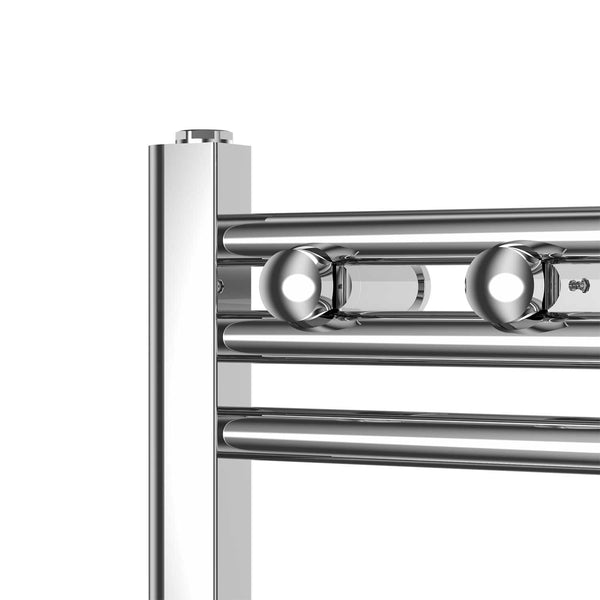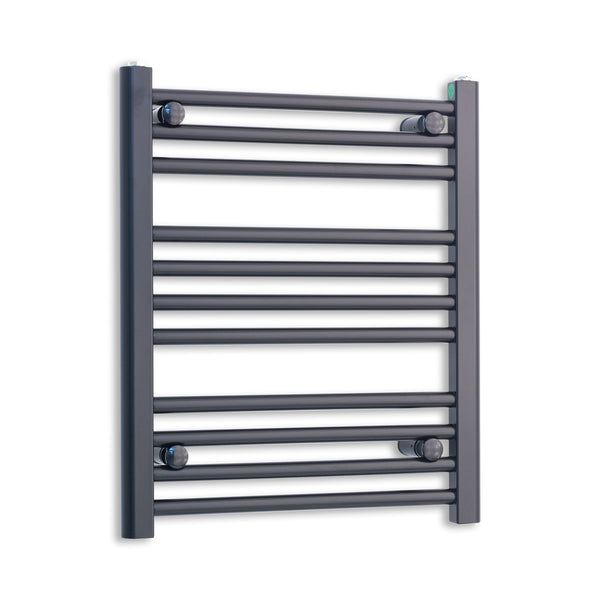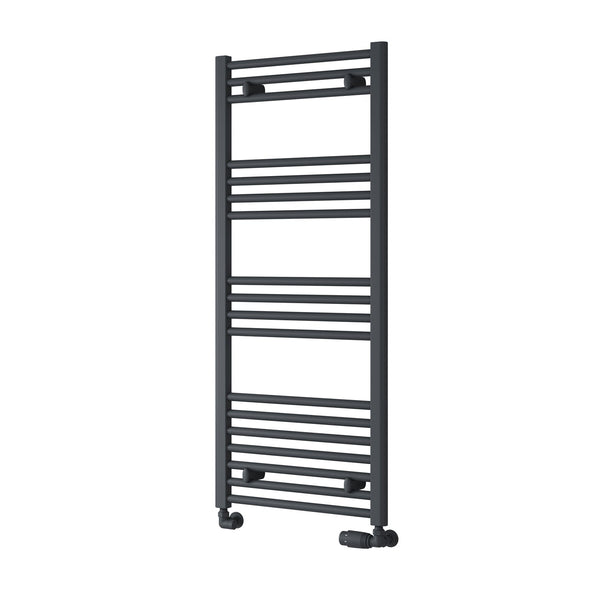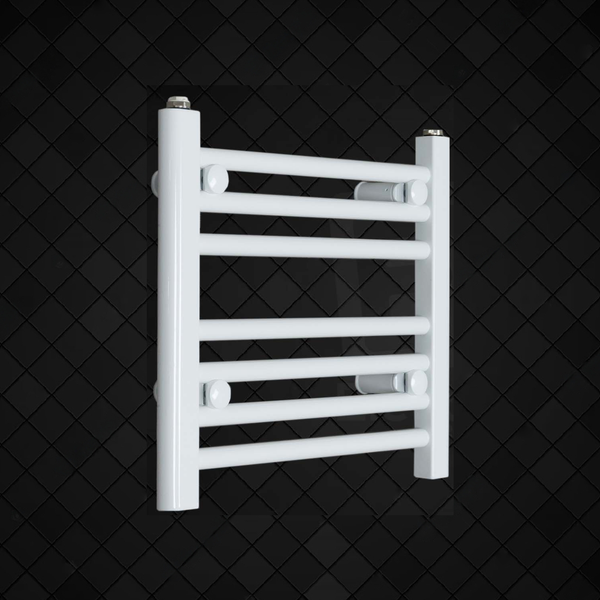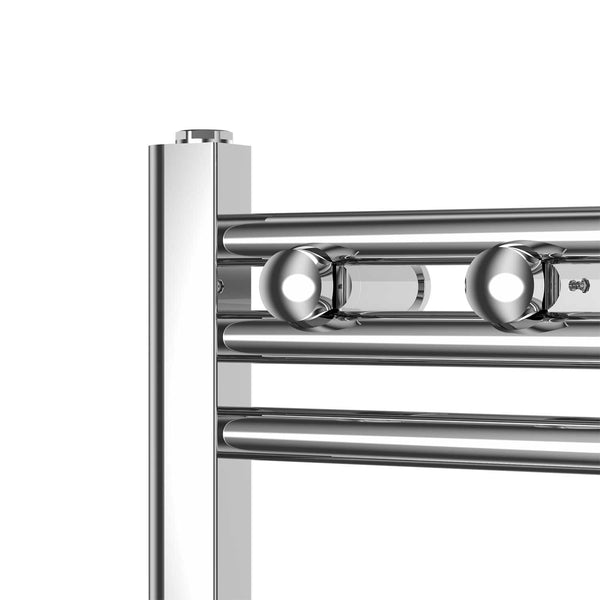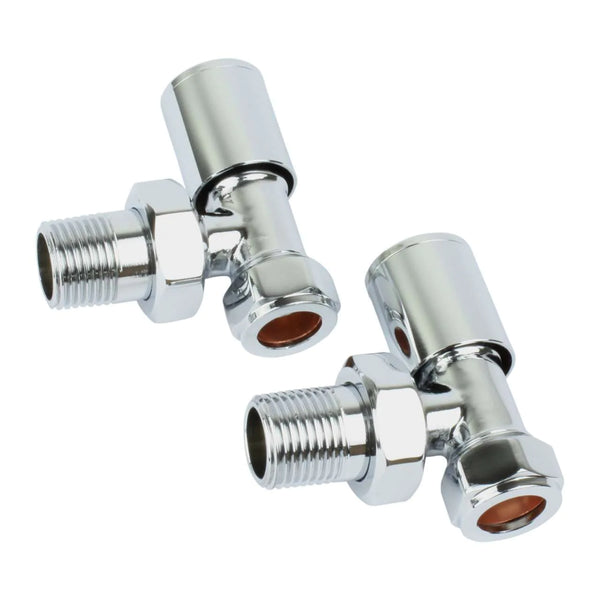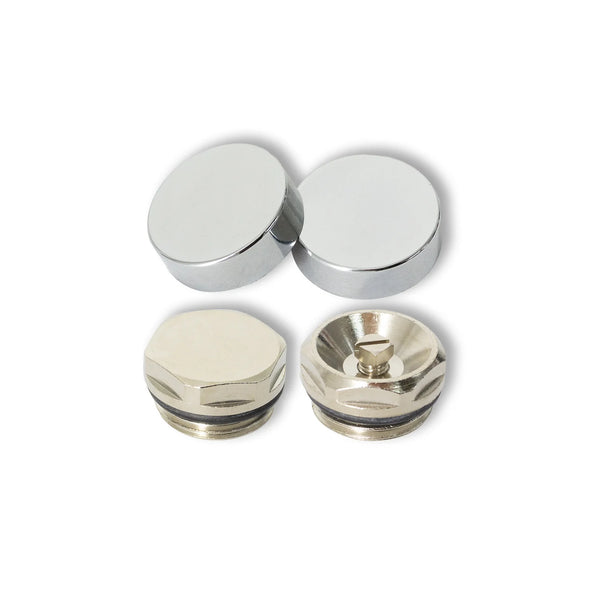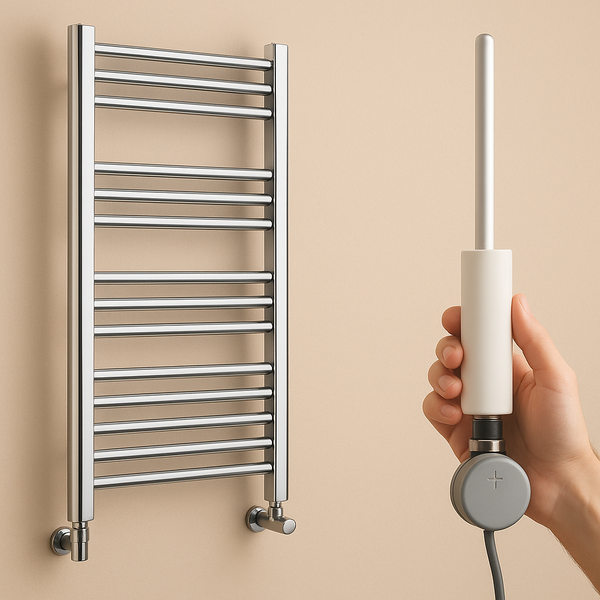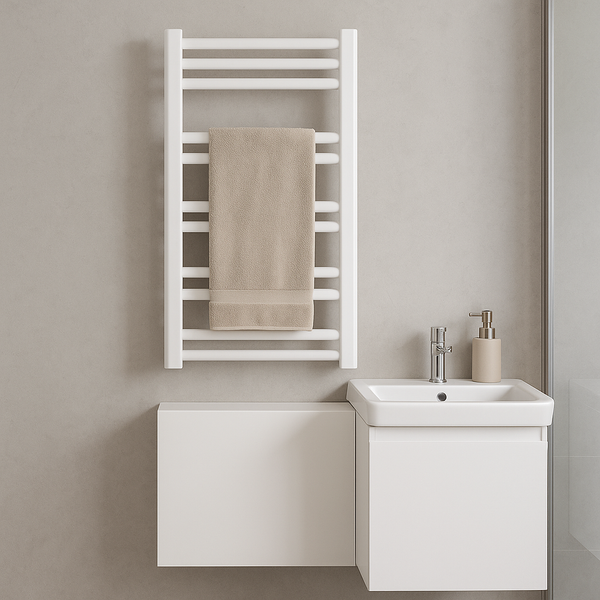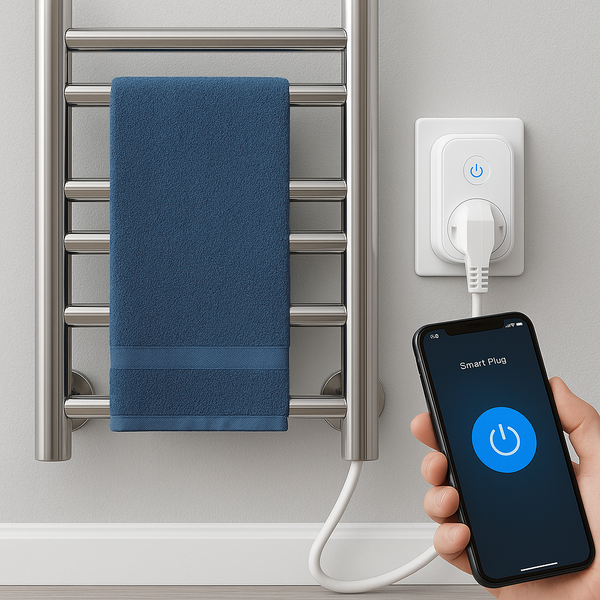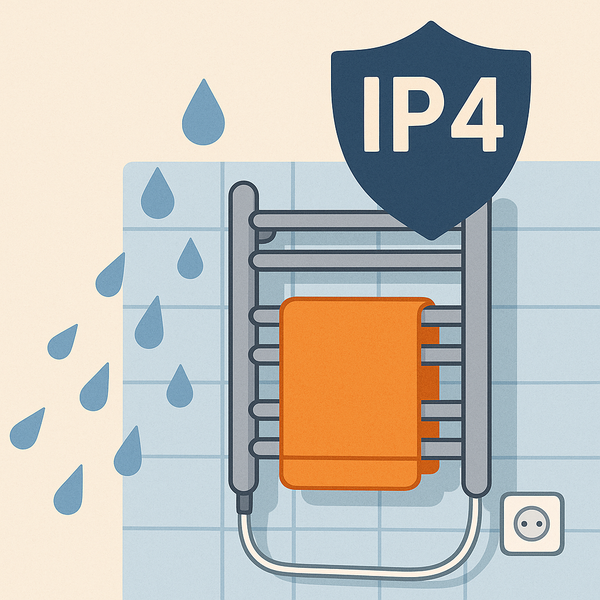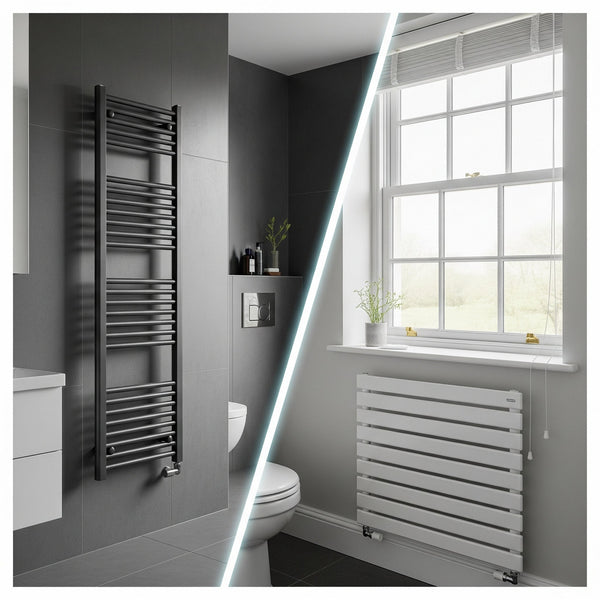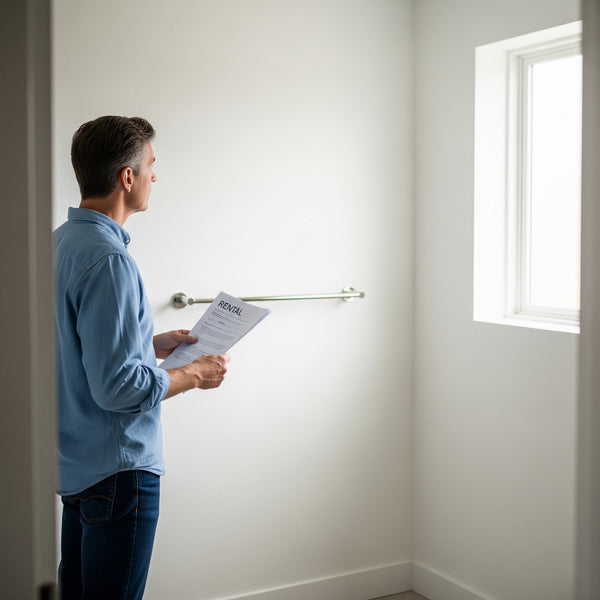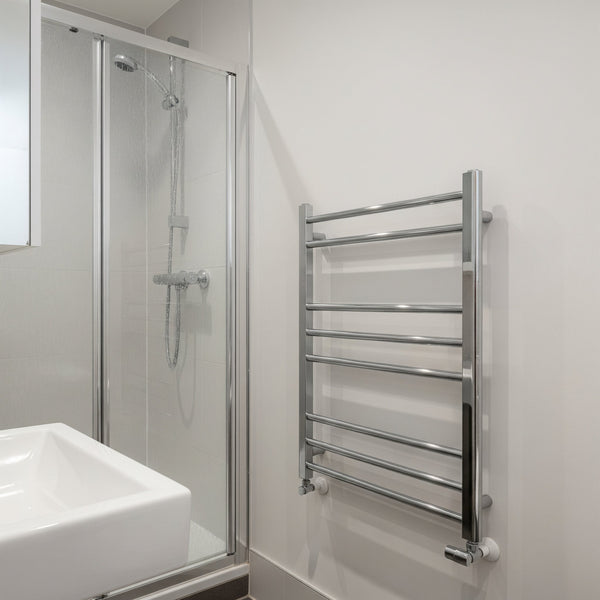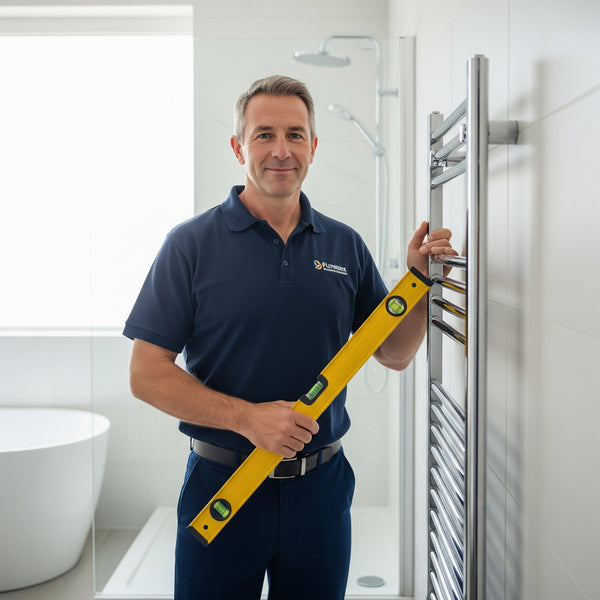Electric, Central Heating, or Dual Fuel: Which Towel Rail is Best for You?
Choosing the right towel rail is more than a design decision it directly affects comfort, energy efficiency, and long-term bathroom performance. In the UK, where energy costs fluctuate and the weather is famously unpredictable, understanding the differences between electric, central heating, and dual fuel towel rails is essential. Whether you're outfitting a family home, a rental flat, or a hotel bathroom, selecting the correct heating method can make all the difference.

In this detailed guide, we'll explain how each type works, compare their pros and cons, and help you identify the ideal solution for your space based on usage, energy goals, and layout. Let’s begin by breaking down how each heating method functions.
What Is an Electric Towel Rail?
An electric towel rail is a standalone heating appliance powered by electricity. It works independently of your central heating system, making it ideal for year-round towel drying and bathroom warming especially during warmer months when you wouldn’t normally run the heating.
How It Works
Electric towel rails are typically filled with a liquid heating element (such as glycol) that warms up quickly when connected to the mains. They are often controlled via a manual switch, digital thermostat, or programmable timer.
Pros of Electric Towel Rails
- Works independently of central heating
- Great for summer use or guest bathrooms
- Fast heat-up time
- Simple installation (no plumbing required)
- Can be paired with smart thermostats and timers
Cons
- Requires access to mains electricity
- Needs professional installation for bathroom zones
- Fixed heat output (based on wattage)
View our complete Electric Towel Rails Collection in stock for fast UK delivery.
What Is a Central Heating Towel Rail?
Central heating towel rails are connected to your home's boiler system and operate in the same way as traditional radiators. They only heat up when the central heating is active, which can be limiting depending on the time of year or your heating schedule.
Pros of Central Heating Towel Rails
- Low operating cost when central heating is already running
- Usually higher heat output (higher BTU ratings)
- No need for electrical wiring
- Best for homes with consistent heating schedules
Cons
- Won’t heat independently outside of heating season
- Slower to warm up than electric models
- Less control over towel drying in spring/summer
These rails are best suited for large family homes or full-house heating plans. Make sure to check the BTU output to ensure it meets your bathroom's needs. Use our BTU Calculator to find your requirement.
What Is a Dual Fuel Towel Rail?
Dual fuel towel rails combine the best of both worlds. They’re connected to the central heating system like a standard radiator, but they also contain an electric heating element that can be used independently. This makes them incredibly flexible perfect for the UK climate where mornings can be chilly even in July.
Pros of Dual Fuel Towel Rails
- Works with or without central heating
- Ideal for year-round use
- Energy efficient when used with thermostats
- Great for en-suites, guest rooms, or Airbnbs
Cons
- Installation is more complex (requires plumbing and electrical work)
- Slightly more expensive upfront
View our Dual Fuel Towel Rail Collection for flexible models in chrome, black, and other finishes.
Heat Output and BTU Considerations
Regardless of which system you choose, your towel rail needs to meet the heat requirements of the space. This is measured in BTUs (British Thermal Units). Choosing a rail with too low a BTU rating will result in a cold bathroom; too high, and you’ll waste energy.
Use our BTU Calculator to calculate the correct BTU based on room size, insulation, and usage. We list BTU output for every towel rail model on our site to help you make the right choice.
Comparison Table: Which Is Right for You?
| Type | Best For | Year-Round Use? | Installation | Control |
|---|---|---|---|---|
| Electric | Guest bathrooms, seasonal homes, Airbnbs | ✅ Yes | Electrician (no plumbing) | Timer, thermostat |
| Central Heating | Main bathrooms, full home renovations | ❌ No (heats only with boiler) | Plumber (no electrics) | Controlled by central system |
| Dual Fuel | Family homes, en-suites, climate flexibility | ✅ Yes | Electrician + plumber | Dual control (boiler + electric) |
What About Energy Efficiency?
All our electric and dual fuel towel rails meet Lot 20 EcoDesign compliance, which means they use smart controls to avoid energy waste. Look for features like:
- Digital thermostats
- 7-day programmable timers
- Open window detection
These smart features are essential for reducing electricity usage particularly in frequently used bathrooms or rental properties.
Which Towel Rail Should You Choose?
Here’s a quick breakdown depending on your property type and usage needs:
- Electric – Best for flexibility, occasional use, or bathrooms without plumbing access.
- Central Heating – Ideal for households with active heating systems during winter.
- Dual Fuel – The most versatile choice for year-round comfort and energy savings.
At Company Blue, we stock a full range of towel rails in all three configurations, with many models available in multiple sizes and finishes all from UK stock.
Still Not Sure? We Can Help
If you’re still unsure which towel rail is best for your space, get in touch with our team. We’re happy to help you compare models, check BTU requirements, or recommend the most energy-efficient option for your home or project.
With fast UK wide delivery, unmatched product variety, and expert support, Company Blue makes it easy to warm your towels and your bathroom the smart way.
Frequently Asked Questions About Towel Rail Heating Types
1. What’s the difference between electric, central heating, and dual fuel towel rails?
Electric towel rails work independently using electricity, central heating rails connect to your boiler, and dual fuel models combine both options for year round flexibility.
2. Which towel rail is best for bathrooms used occasionally?
Electric towel rails are ideal for guest bathrooms or cloakrooms that aren't used daily, as they can be turned on only when needed.
3. Can a dual fuel towel rail work without central heating?
Yes. In summer or warmer months, you can switch to electric mode on a dual fuel towel rail without turning on the central heating.
4. Are dual fuel towel rails more expensive?
They may cost slightly more upfront due to dual installation, but they offer long-term savings through flexible heating control.
5. How do I know how much heat my bathroom needs?
Use our BTU Calculator to determine the right heat output for your space based on size and insulation.
6. Do electric towel rails need a thermostat?
Yes, using a thermostat or timer with electric rails improves energy efficiency and safety.
7. Can I install an electric towel rail myself?
Installation in bathroom zones must be done by a qualified electrician to comply with UK safety regulations.
8. Do central heating towel rails work all year round?
No, they only function when your central heating system is on which can be limiting in spring and summer.
9. Which towel rail heats up the fastest?
Electric towel rails heat up faster than central heating models and offer near-instant warmth.
10. Where can I get help choosing the right towel rail?
Contact our team via the Contact Page we’ll help you choose the ideal model for your needs.
